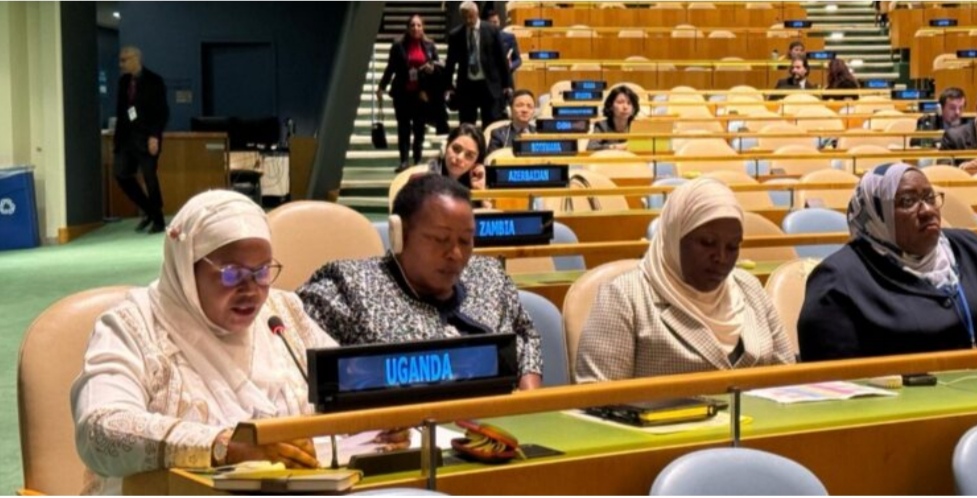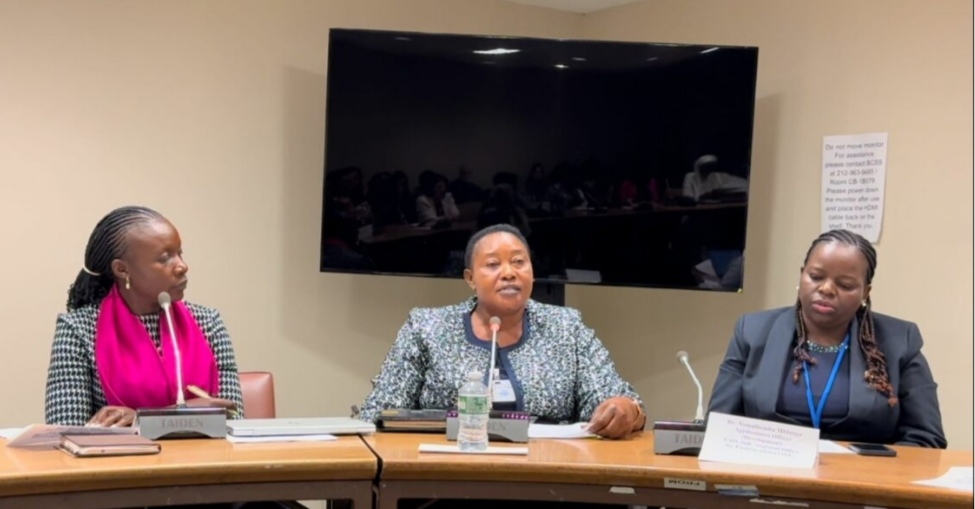Ministers Champion Fight Against Islamophobia and Gender Inequality in Agrifood Systems

The 3rd Deputy Prime Minister and Minister without Portfolio, Rukia Nakadama has reiterated Uganda’s commitment to combat Islamophobia and support the Organization of Islamic Cooperation (OIC) in its efforts against this phenomenon. She urged all states to unite in solidarity against any policies, statements, or practices that discriminate against Muslims or associate them with violence. Nakadama made these remarks on March 15, 2024, during a high-level event at the 68th Session of the Commission on the Status of Women, held at the United Nations (UN) headquarters in New York, USA. She was accompanied by Babirye Milly Babalanda, the Minister for Presidency, Hajjat Zaminah Malole, the Secretary of the Presidential Awards Committee, and other Ugandan technical officers.
The special high-level event commemorated the International Day to Combat Islamophobia, emphasizing the collective mission to confront the alarming global trend marked by racism, racial discrimination, xenophobia, and related intolerance.
During a side event of the session focusing on gender-responsive policies and equitable agrifood systems, Hon. Babalanda highlighted the crucial role of agriculture in transforming developing economies, as recognized in development economics literature. She emphasized that progress in gender equality and women’s empowerment in agrifood systems requires deliberate policies, programs, and investments addressing multifaceted challenges faced by men and women.

Babalanda stressed the importance of policies addressing resource and asset gaps, unfair social norms, and institutional frameworks perpetuating gender inequalities. She mentioned Uganda’s commitment to implementing gender-sensitive food and agricultural policy frameworks, including the ongoing review of the Food and Nutrition Policy of 2003 and various interventions promoting inclusive gender practices.
However, Babalanda emphasized the need to strengthen the collection and utilization of high-quality data disaggregated by sex, age, and other socio-economic differences. She advocated for accurate qualitative and quantitative gender research to effectively monitor, evaluate, and accelerate progress on gender equality in agrifood systems, along with localized interventions addressing multiple inequalities.
Babalanda acknowledged the persistence of discriminatory social norms and rules affecting women and girls, underscoring the necessity of addressing informal and formal factors causing gender inequality. She emphasized the importance of achieving lasting transformative change by addressing gendered resource constraints and simultaneously tackling gender inequality at both informal and policy levels.


Comments are closed.